Your Trusted Gynecologist Miami FL
All-Inclusive Care: Where Miami Women Find Their Comfort & Trust.
Finding the right gynecologist is personal. We're here to make it easy.
Appointments made simple in just three steps!
Choose your date
Pick your service
Confirm and relax. We've got you covered

All Inclusive Preventive Care
Searching for an experienced gynecologist near you? Find us at All-Inclusive Preventive Care in Miami Gardens. We combine years of expertise with compassionate patient care. Whether you're a new patient or returning for continued care, experience the difference of a clinic that truly understands the importance of women's health. Don't wait - all it takes is a phone call and your health deserves the best. Schedule with Miami's premier gynecologist today!
We prioritize women's health, offering top-tier gynecological services right in the heart of Miami. Our clinic stands as a haven where every woman can openly discuss her health concerns with her doctors, confident in the knowledge that she'll receive amazing care, accurate results, and the understanding she deserves. You are in good hands with us.
Do you have gynecological questions or concerns? Whether it's a routine checkup, lab tests, or a specific issue, our streamlined process ensures easy access to top-tier care.
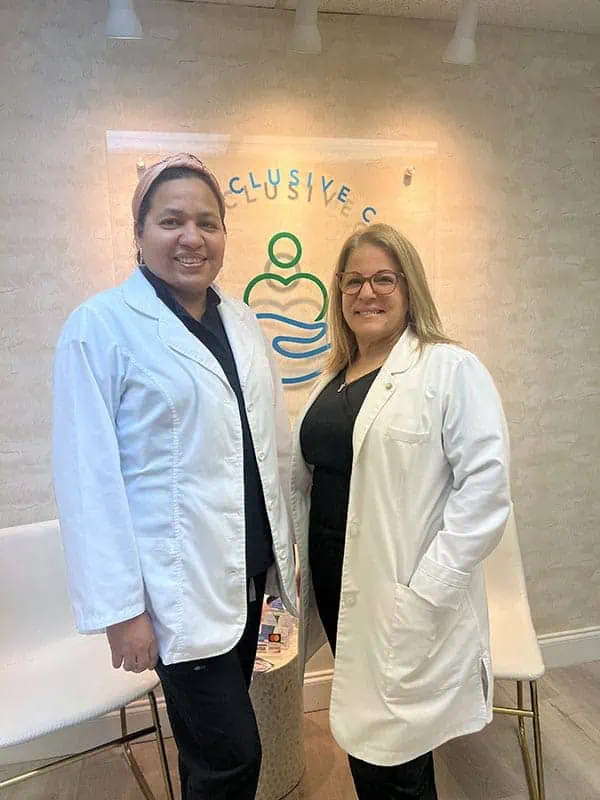
Table of Contents
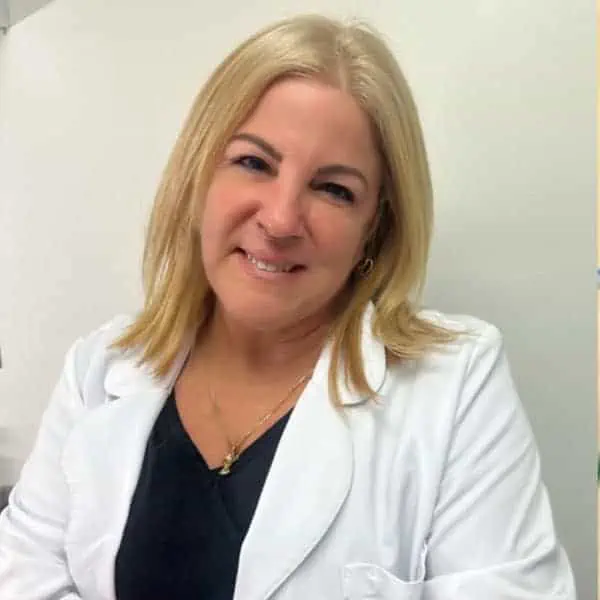
Meet Your Expert Care Professional: Evelyn Rodriguez
Introducing Evelyn Rodriguez – a knowledgeable and compassionate Obstetrics-Gynecology Nurse Practitioner and Primary Care Practitioner at All-Inclusive Preventive Care. With years of experience under her belt, Evelyn has been a warm beacon of hope and care for women across all life stages. Caring deeply about her patients, from well-women exams and contraceptive management plans to intricate concerns revolving around menopause, Evelyn's expertise shines through. As a valued patient at All-Inclusive Preventive Care, expect a comfortable, nice, and great experience. Know that you are cared for in the most compassionate way with Evelyn. For our Spanish-speaking community in Miami, you'll be pleased to know Evelyn is fluent in both English and Spanish, ensuring seamless communication.
Gynecological Services We Proudly Offer:

Gynecology Consultation

Gynecological Well-Woman Annual Exam

Well-woman and Primary Care Annual Exam

Family Planning

Contraceptive Methods

Menopause Consultations

Transvaginal Ultrasound

GYN Procedures
Insurance Coverage at All-Inclusive Preventive Care
We understand the value of hassle-free medical billing. Therefore, All-Inclusive Preventive Care accepts a variety of top insurance providers. If you don't see your insurance listed below, or if you need any verifications, please contact us.





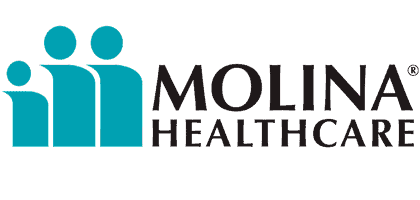

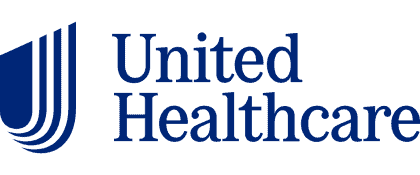
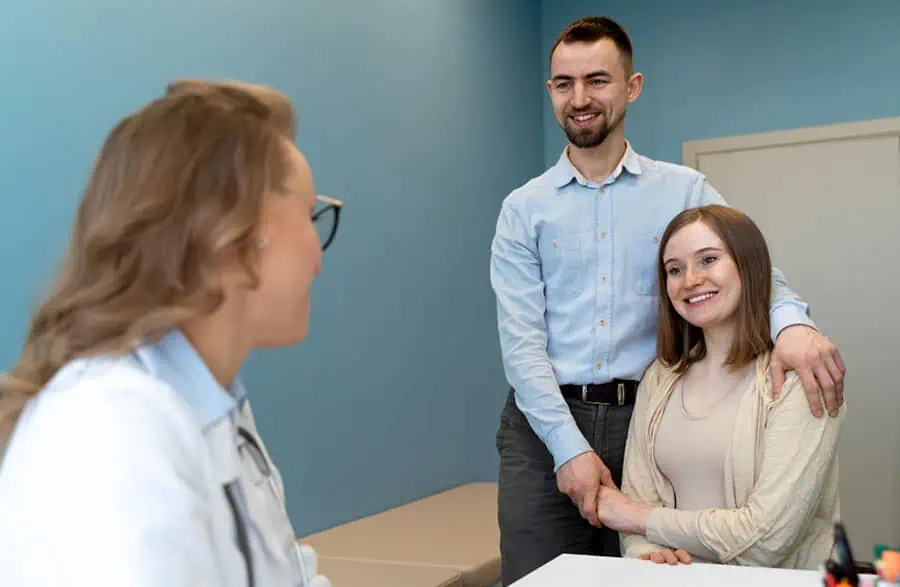
The Significance of Gynecological Examinations
While the idea of discussing and examining intimate anatomy might be daunting, these check-ups are vital for women's health. Many conditions like cervical cancers and HPV can remain silent during their early stages. Regular gynecological screenings aid in early detection, which often results in more effective treatments. It's an essential step towards understanding your body and advocating for your health.
Topics You Should Always Discuss With Your Gynecologist
Your gynecologist is there to help you, but they can provide the best care when they're fully informed about your health concerns. While it may feel awkward at times to discuss intimate topics, remember that a professional gynecologist is there to assist without judgment. Over time, being open about these topics can lead to better care. Here are topics you should consider discussing:
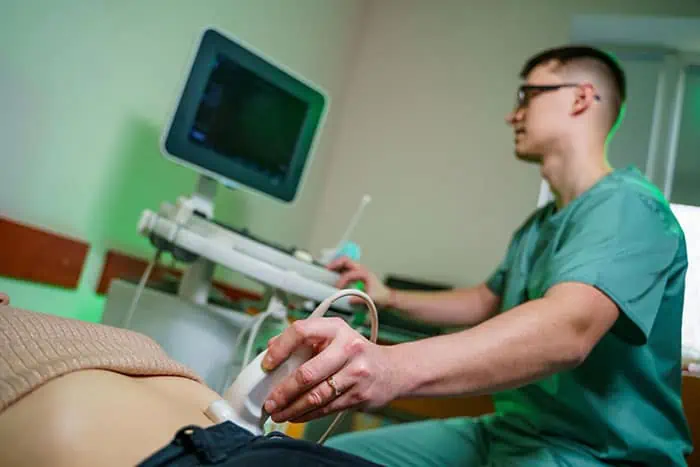
Preparing for Your Gynecologist Visit
Visiting a gynecologist doesn't require elaborate preparations, but a few guidelines can help ensure an efficient and effective appointment:

Dress Comfortably

Reschedule During Periods

Avoid Pubic Hair Removal

Refrain from Intercourse

Avoid Douching

Know Your Medical History

Open Communication
Benefits of Choosing a Female Gynecologist
While numerous skilled male gynecologists provide exceptional care, many women feel more comfortable with a female specialist for their gynecological needs.
- Empathy and Understanding: Female gynecologists can often relate more directly to the experiences of their patients, fostering a sense of empathy and understanding.
- Comfort Level: Being examined by someone who shares the same anatomy can provide added comfort, allowing patients to discuss their concerns more freely.
Shared Experiences: A female gynecologist might personally relate to many of the concerns presented, offering firsthand knowledge and insights on treatments and symptom management.
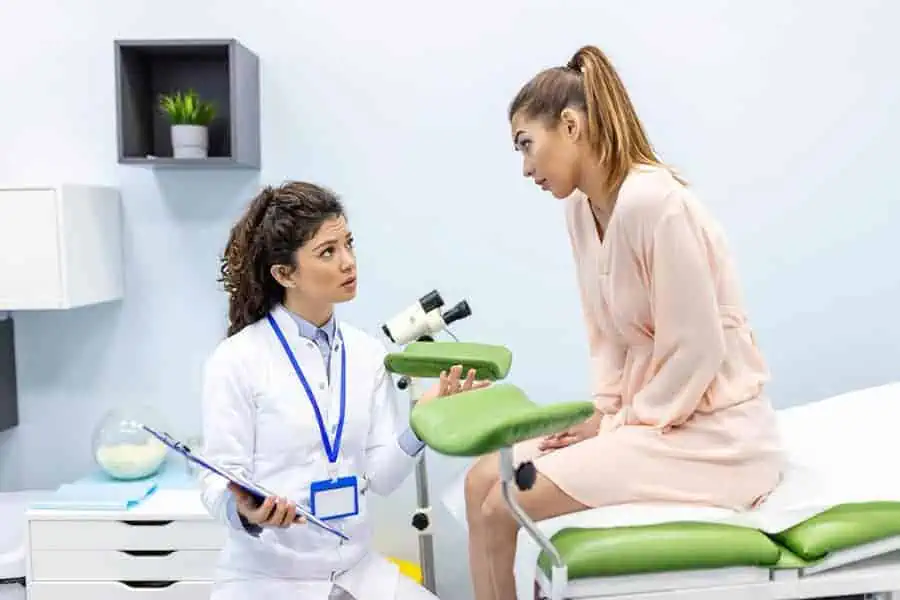
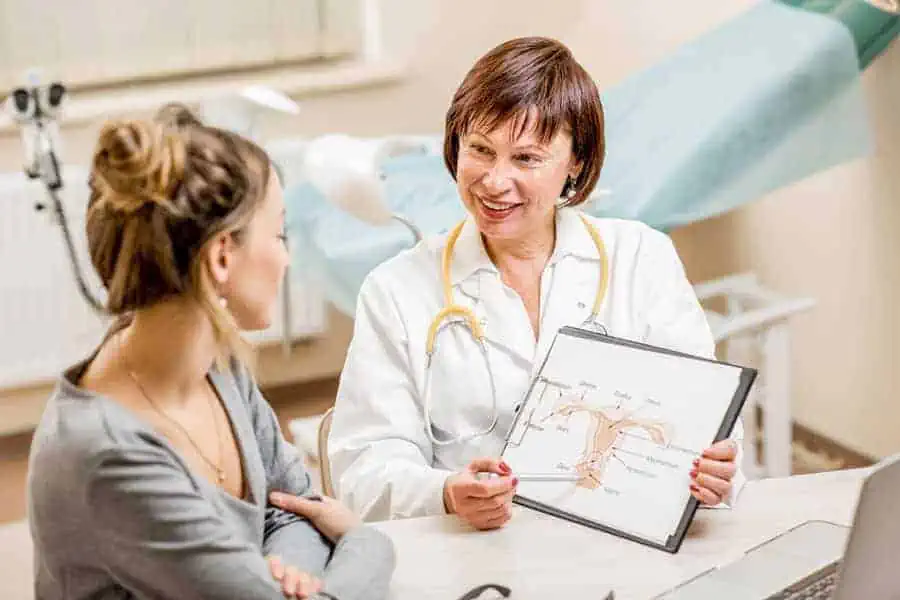
Most Common Gynecological Problems and Conditions
Every woman, at some point in her life, may encounter certain gynecological issues. Recognizing and addressing these concerns promptly ensures overall well-being:
- Dysmenorrhea
- Pain during intercourse
- Pelvic pains
- Polycystic Ovarian Syndrome (PCOS)
- Sexually Transmitted Diseases (STDs)
- Vaginitis
- Fibroids
- Cervical Ectropion
- Salpingitis
- Ovarian cysts
- Endometritis
- Ovarian inflammation
- Menopause-related concerns
When Should an Adolescent Girl See a Gynecologist?
According to the American College of Obstetricians and Gynecologists (ACOG), young women should consider seeing a gynecologist between ages 13 and 15. While this doesn't always imply a health concern, it's a critical time of bodily changes and sexual exploration. Early consultations provide:
- A better understanding of body changes.
- Crucial information on menstrual cycles, sexual health, and preventive measures.
- Enhanced preparedness, reducing risks like unwanted pregnancies or STDs.
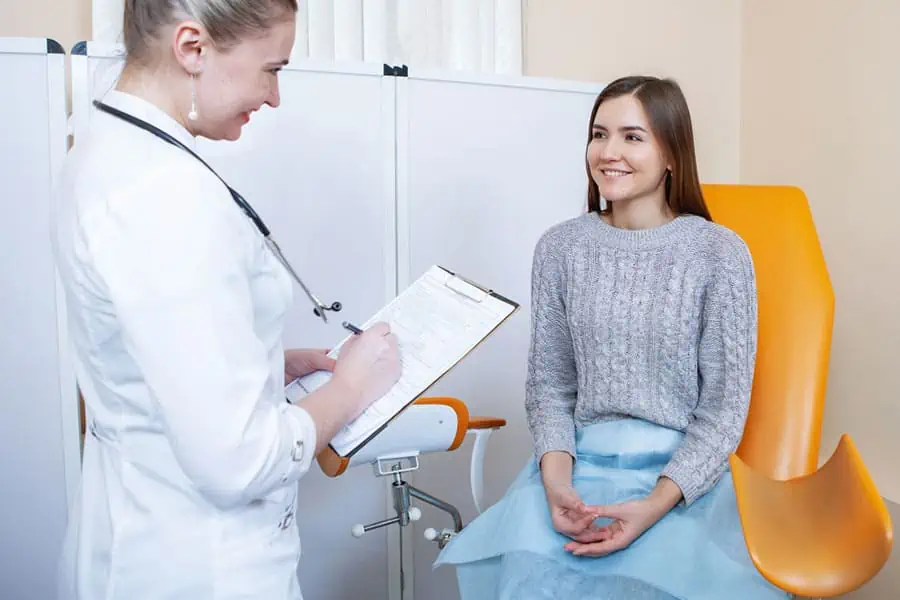

The Importance of Consulting a Trusted Menopause Specialist
Every woman will experience menopause, a natural transition characterized by:
- Vaginal dryness
- Mood fluctuations
- Hot flashes
- Irregular menstrual cycles
- Weight variations
- Sleep disruptions, among other symptoms.
While natural, these symptoms can disrupt daily life. Consulting a menopause specialist can guide you through symptom management, ensuring improved quality of life.
Questions Your Gynecologist May Ask You
A productive visit to your gynecologist involves a two-way conversation. While you'll have questions, your gynecologist will too. Here are potential questions to expect:
- Are you currently sexually active?
- What methods of protection or contraception do you use, if any?
- How many sexual partners have you had?
- Have you experienced pain or bleeding during or after intercourse?
- When did your last menstrual cycle begin?
- How long do your periods typically last?
- Are your menstrual cycles regular?
Being open with your answers helps your gynecologist tailor their guidance to your unique needs.

miami neighborhoods near us
Miami Gardens, Palm Springs Estates, Palm Springs North, Country Club, Opa-locka, Hialeah Gardens, Hialeah Estates, Carol City, Bunche Park, Hialeah, Westview, Mitchell Lake Estates, Scott Lake, Lakewood Estates
Things To Do in Miami

Everglades National Park

Bayside Marketplace

Pequeña Habana

Bayfront Park

Miami Design District

